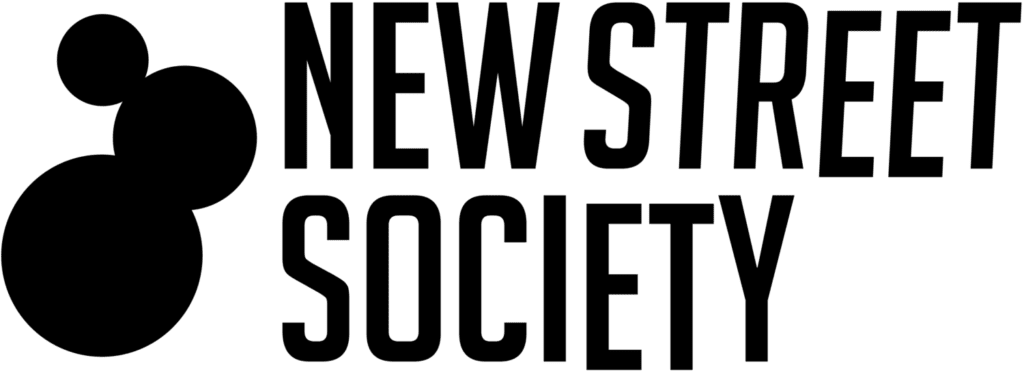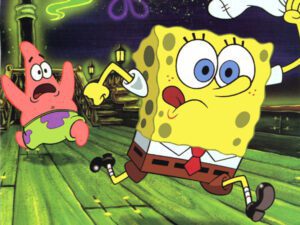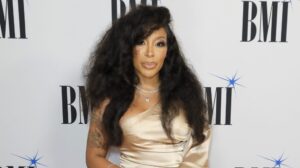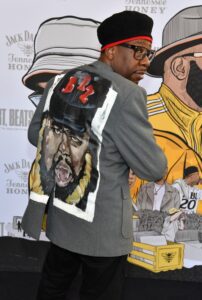Amon Tobin Discusses His Aliases, Music As An Art Form & His Quest For True Love [Interview] – FUXWITHIT
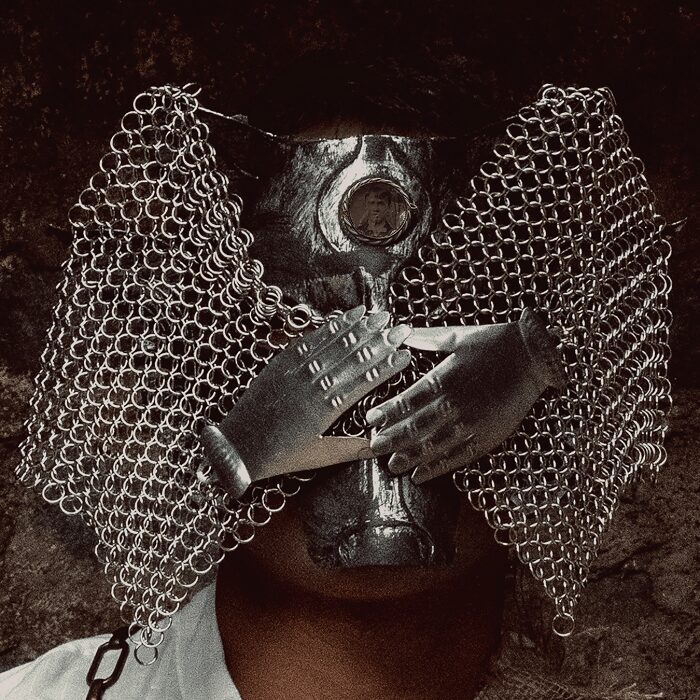
For most musicians, having a chance to play at their local venue is a major feat in-and-of-itself. Scrawled on their list of absolute bucket list places to play, you’ll most likely find the legendary Sydney Opera House, and the historic Olympia in Paris. For Brazilian-born Amon Tobin, those dreams became a reality in 2012 when he played both while debuting his cutting-edge audio visual tour ISAM. Since then, he’s released countless albums under a variety of aliases, most recognizably his hip-hop infused bass monstrosity that is Two Fingers. Along with this, he’s written scores for video-games like Sony’s Infamous series, and Tom Clancy’s Splinter Cell series. Using an immensely idiosyncratic approach to his releases, he’s traversed all known sonic boundaries with ease and grace, never settling into a readily recognizable soundscape for longer than a moment.This constant calculated shifting of sounds has helped propel him to an undeniable status as one of the most visionary artists of the current musical generation. Recently, I had the great pleasure to speak with him and pick his brain about his 6 album releases in the past 16 months, his plans for his very own record label Nomark Records, his dreams, and what he has coming next both musically and personally. Check out our full conversation for yourself below!
With the world being in its current shape, how are you holding up, and what are some takeaways you’ve had from the year so far?
Oh man, well first of all I’m one of the lucky ones, right? I’ve got no cause for complaint really. People have said to me “you’re fine man, you’ve been self-quarantining for years, so this is just another day.” If I ever go to jail I’ll be saying that to the other inmates and see how that goes. But in all reality, I’m making music and keeping my head down. Mainly I’m just trying to focus on things that are working. COVID or no COVID, I think that’s a healthy thing to try and do. There’s some things that you can’t really control much besides how you deal with them, right? So I’m just trying to do the most I can and be helpful when possible. It’s not right to wander around and think nothing’s wrong, but it’s also not good to be moaning all the time.
What does a perfect world look like to you?
I feel like there are many days when I walk into my studio and I feel like the time passes and I’m not aware of it, and that feels kind of blissful. I don’t know if I’d call that perfect, but I do find a sense of calm in my work. I don’t do meditation, but it’s about as close as I get. I’m not sure if I reach a meditative state in my workflow because I don’t have a reference point for it, but I become unaware of other things and get lost in what I’m currently doing.
You recently started your own record label in the form of Nomark Records! Can you tell us a little about it currently, and the direction you want to steer it in the future?
It’s really a mad idea to start any kind of record label, at the moment anyway, and maybe even stranger to be the sole inhabitant of one. But it was kind of a form-follows-function situation where I had a bunch of projects running in parallel and a lot of things that I wanted to develop over time, and I needed somewhere to house them and grow them properly. On the face of it, it could look like some kind of egomaniacal construct, but on the other hand it’s freedom. It’s genuine freedom to do things on my own terms and try things out that I haven’t yet tried, without fear of upsetting anybody or putting anybody else at risk financially.
In the past you’ve spoken about the dichotomy and differences of being an artist and an entertainer, could you expand upon that a bit for us?
I guess it comes down to intention, you know? Because in music especially there’s a lot of contradiction in even the terminology we use when we talk about the music industry. It’s hard to imagine talking in the same way about the art industry. In one you cater to a demographic, and the other is more self-serving. I make a distinction between the two things just because I feel like everyone loses when you start making things for them or with them in mind. It’s sort of a patronizing way to go through your creative process with the idea that somehow I already know what people want, and then to only do that in order to satisfy. It feels like you’re robbing yourself of opportunities creatively, and robbing people of an authentic experience. It just feels like a waste of time. There’s so many more efficient ways of achieving success or making money or any of those things. Doing it through the arts, it feels like “why go that route?” If you’re going to make something, at least make it because you truly care about it. At the very least, even if it doesn’t work, at least you’ve done something you can really be proud of. It’s an expression of yourself.
I feel like as time goes on, or at least I’d hope, that you have a greater sense of who you are, and less of a need to reinforce that through other people. So that genre becomes a less important aspect of your identity, in regards to needing to broadcast your identity.
In past interviews you’ve said that you don’t produce specific genres, rather they’re identities. Could you touch a bit on that idea?
Something that I’ve noticed, especially as I get older, are the things that were important to me when I was a kid, in terms of identity, are less vital now. I think when all of us are growing up, especially as teenagers, we’re trying to create an identity for ourselves and broadcast that identity in order to define ourselves. We’re all trying to say “this is what I am, and this is what I’d like to be seen as.” And you’re trying to broadcast that, and music is a great sort of embellishment of that. Even through fashion or the like, you develop a relationship with other like-minded people. You wear similar clothes and listen to similar music, and you have this sense of urgency to define yourself to other people, and that’s where genre comes in. I feel like as time goes on, or at least I’d hope, that you have a greater sense of who you are, and less of a need to reinforce that through other people. So that genre becomes a less important aspect of your identity, in regards to needing to broadcast your identity. Genres in music over the years have become less and less important, at least for me. Now I view music much more as its core elements, like melody, rhythm, and tone, and the various shapes that those can take, rather than what they might represent.
I feel like there’s a great mystery in music, and not necessarily one I, or anyone else, will ever “solve”, but I love a good mystery and I love to inhabit that place.
At its core, what is music to you, why do you think it’s important, and why do you make it?
I don’t know that it’s important. I know why I’m making it, because it’s one of those things where you’re constantly reminded that you really don’t know anything. I think it’s a really healthy place to be where you’re constantly in a cycle of discovery that never seems to end. The more doors you open, the more doors there are, it’s just a fascinating world. I’m curious and I like to learn about how it might work, and I’m really interested in the more-so nebulous aspect of it. You can’t pin-down the nontechnical aspect of it, or the emotional side of it, which is really difficult to break down and describe in any useful way. But I think that’s it there and we all feel it and we all connect with it. So I feel like there’s a great mystery in music, and not necessarily one I, or anyone else, will ever “solve”, but I love a good mystery and I love to inhabit that place.
In the past you’ve equated music to a free-form organism that constantly evolves and steals ideas from other pieces around it, what does that organism in its current state look like to you?
I’m not sure if I could say it has a current state honestly. It’s such a personal thing that you might have a version that’s very different from mine. I guess the closest I could get would be what interests me in music at the moment vs. what would’ve interested me years ago. It’s sort of like a gas, you know, formless and ever-changing. I do think though that there are anchor points historically that you can kind of identify and everyone would agree on.
I need to get across that this isn’t something like “oh hey here’s an Only Child Tyrant record, and now i’m done with that. And here’s a Two Fingers record, now that’s done. These are all things that are really central for me and I’ve been developing for ages, trying to gain an understanding of them. Something more than a superficial appreciation, and more of a link to something that’s meaningful to me.
For some, releasing even a single album in one year’s time is a major feat, yet you’ve now released 6 albums since April of 2019 with more on the way. How do you maintain that steady of a work-flow while keeping the quality at absolutely superb levels?
To be fair, it has been about 10 years that I’ve been making these records. It might seem like I’m pumping them out due to the release schedule, but I’ve actually been working on them for ages. But that’s kind of my point with this label, right? I need to get across that this isn’t something like “oh hey here’s an Only Child Tyrant record, and now i’m done with that. And here’s a Two Fingers record, now that’s done. These are all things that are really central for me and I’ve been developing for ages, trying to gain an understanding of them. Something more than a superficial appreciation, and more of a link to something that’s meaningful to me. And that takes time, so you can trace things back like Two Fingers to when I was very young and the relationship I had with hip-hop. And then you can look at things like Only Child Tyrant and trace it back to things you heard on my first record. I didn’t intend to set off in those directions, but you sort of start to realize after one or two tracks that that’s what’s happening. That’s what I want to do with the music I create and release, to fully explore it and not necessarily house it all under one roof as far as describing it and naming it to people. Personally, if I could, I wouldn’t have all these different aliases to represent my music, but I feel that’s a bit unfair. Like, If I put out a Two Fingers track, and then the next Two Fingers release down the line someone’s like “oh this sounds like Figueroa”, then it all just becomes very confusing. Whereas if I at least put different aesthetics and names for these things, then I can quietly work on them all in parallel without putting people through the inconvenience of having to sort them out by themselves. I at least try to group things together in sort of related forms.
I do believe that everything that I do relates to something that is in me and is a proper part of me, but I also don’t know how important that is honestly. It’s funny because a lot of the music I hear, I don’t really mind who the person is, I’m sort of constructing my own world using that music.
Would you say that each of these aliases is a different aspect of your own personality throughout periods of your life?
Well, we’re all made up of much more than just one thing aren’t we? It’s kind of contradictory and multi-faceted. I feel like unfortunately when you start out making music, the things that people respond the most to becomes the thing that becomes repeated and developed. It might not even be your primary interest even at a certain point. So I’m trying to find a solution for that for my own creative development. I do believe that everything that I do relates to something that is in me and is a proper part of me, but I also don’t know how important that is honestly. It’s funny because a lot of the music I hear, I don’t really mind who the person is, I’m sort of constructing my own world using that music. I guess what I’m trying to say is that I’m not necessarily trying to project myself throughout all these different projects into other people, but I can’t deny that they’re all part of me at the same time.
I was in a cabin in the woods in Northern California wanting very much to do something that wasn’t that, and I was listening to a lot of Mexican folk music and things that felt like the opposite of a giant show. I felt slightly disconnected being this huge production, and I could see things kind of tipping in that direction.
Your latest 8 track album is under your Figueroa alias, which places heavy emphasis on the use of a guitar. Can you talk a little about the inspiration behind it, and the story behind the Figueroa alias attached to it?
It was quite a specific time for me where I was on the tail-end of a giant audio visual tour (ISAM) and the music was very production oriented. It was very much about the sounds of the future and trying to make sounds that would fit a sort of imagined future, and the production was very constrained to that aesthetic. It was very technical in all aspects. Then, I was in a cabin in the woods in Northern California wanting very much to do something that wasn’t that, and I was listening to a lot of Mexican folk music and things that felt like the opposite of a giant show. I felt slightly disconnected being this huge production, and I could see things kind of tipping in that direction. In general they did too, you can look at how now we have all these enormous festivals around the world with very much so bloated productions and they’re wonderful, but they’re also kind of fairground rides. And as much as I see the value in that, It didn’t really feel like what I wanted to be doing in that moment. I felt like making songs, and unfortunately I can’t play the guitar or sing, so I had to kind of employ techniques that I did have a handle on. So I programmed the guitars, and I sang as best as I could, and made songs that I honestly didn’t think anyone else would hear because I wasn’t really making it to release it. And then years later I was relistening to it, and I thought “I really like these songs, but I’m not qualified enough to record them” So I sent them to Sylvia Massy, and she’s worked with so many amazing people like Prince, Johnny Cash, and Tool. I thought she would know someone who would be able to sing or perform them, but she actually convinced me to go in and record the songs with her, the vocals at least. To my surprise, I found myself at Capitol Records recording with this amazing producer trying my best to overcome my sense of imposter syndrome.
This is Nina Simone’s microphone, what the fuck am I doing here?
What does imposter syndrome feel like to you?
It feels like you’re out of your depth mainly, and that you’re not worthy of the resources afforded to you. You know, because I’m singing into a microphone that’s immensely sought after (a Neumann M49) and I’m just like “this is Nina Simone’s microphone, what the fuck am I doing here?” So you have that aspect, but on the flip side I believe that being out of your depth is a very good and healthy place to be. It forces you to grow, and I think creatively it’s a very inspiring place to be as well because if you don’t reach, then you sort of just fall and drown. So I think you need to do that for the benefit of your own growth. It’s not an unfamiliar spot for me to feel out of my depth, but it’s not necessarily comfortable either.
We want things we love in the world, we don’t want it to be this barren landscape of just shit. So to have that, we have to sustain it, much like the environment. You can’t just keep sucking up all the resources and wonder why you’re living in a post-apocalyptic fucking nightmare. It’s the same with anything really; music, art, etc., if you want more of it, as a consumer (for lack of a better word), or even just a person, then you need to step up and make sure that happens. Or else the only things that will be in your life will be whatever the fuck they put on the radio nowadays.
As of your last interview, you were taking full advantage of Bandcamp’s Vinyl Campaign service in order to fund your projects, have you seen that to be a sustainable business model?
Well, I wouldn’t really want to recommend a business model because I’m still very much very early into the vision of this label and I’m not sure if it’ll be sustainable or not. As far as Bandcamp is concerned, I just think they’re great honestly. I love Bandcamp, their whole outlook. You could compare them to someone like Spotify and you see a genuine priority in sustaining artists at whatever level, whether you’re an amateur, professional, or whatever you call it. I really do feel like they’re trying to do something that’s fair, and “fair” might not even be the best descriptor. It’s just about having more of what you want in the world still exist because you’ve sustained it. Some people might say it’s an artist-first approach, but that’s almost a misconception because as humans, we want good things in the world, right? We want things we love in the world, we don’t want it to be this barren landscape of just shit. So to have that, we have to sustain it, much like the environment. You can’t just keep sucking up all the resources and wonder why you’re living in a post-apocalyptic fucking nightmare. It’s the same with anything really; music, art, etc., if you want more of it, as a consumer (for lack of a better word), or even just a person, then you need to step up and make sure that happens. Or else the only things that will be in your life will be whatever the fuck they put on the radio nowadays. So you could, in a sense, say it’s an “artist-first” approach, but it’s really more a lifeline to people that want beautiful things in the world.
You also started the Nomark Club subscription service! Can you tell us a little about that, and what plans you have for it in the future?
So that in itself was an effort at sustainability. I’m acutely aware that what I make is not popular music, so there’s a limited amount of people that it’s going to reach. And there’s a limited amount of funds to make it work, and therefore make more of it. I have to say though, that this isn’t just me doing all things Nomark related. I have this absolutely wicked team filled with absolutely amazing people who’re helping me do this, and I’d honestly be lost without them. They majorly helped set this up where they got in touch with people who might’ve been interested in my musical performances and basically allowed them an outlet to get more of it simply. Because of the subscriptions, I’ve been able to spend money on sessions at Capitol Records, or get equipment to make the music sound better, or even not work at Burger King. But that’s what it comes down to honestly. It’s encouraging that people lament about how it’s all fucked and people are so narcissistic and self-serving, but I haven’t had that experience. I’ve had people stepping up and giving money for music, which I think is a mad idea for a whole generation of people. So because of that, it’s really been both amazing and surprising that people will be like “yeah, I actually will spend $60 on this a year”, and I’ve tried to give them much more than they’ve expected in return. Because I always like when I spend money on something and I end up with more than I expected, so on the flip-side I’m trying to deliver that same experience as well to everyone that chooses to support me. So far people seem really genuinely happy with it, and I hope we can carry it forward. It’s weird to say, but it almost does have a sort of community feel to it. Because it directly affects me, it’s not like with signing a record to a label and the artist ends up with a fraction of the revenue from it. So with the Nomark Club, all that money directly goes to me making more stuff, and I’m able to thank people directly through the message board. I actually only recently discovered on Bandcamp that I can be like “oh hey, here’s some drum programming” to all my subscribers, and it really gives it this overarching sense of intimacy, and I absolutely love it. It feels much more like a personal connection with my fans and the people that choose to support me. There isn’t that weird sort of corporate barrier that is fairly prevalent nowadays. I feel like there’s a draw to what we have going because it feels more legitimate and gives it a sense of authenticity.
What does the idealistic future of Nomark Records look like to you? Do you plan on incorporating other musicians? Or will you continue to use it solely as your own personal record label?
That’s entirely up to how sustainable it is, really. Because, like I said, I don’t want to put anyone else’s expectations on the line, or make promises I can’t keep to anyone else, so I’m trying to see if this floats for now with my own stuff. It’s been a year and a half and we’re still here, and we seem to be growing which is really good. We actually just broke even actually, after everything, and given the time-frame it really wasn’t bad compared to most business enterprises, especially when your main export is something people don’t think they should pay for. So I feel very lucky, and now going forward I feel like “let’s see how the rest of this year goes” and if it’s still progressing and growing, and there’s budget to pay artist advances and treat them the way they should be treated, then I’d hope I could make a video for an artist or pay a promotion company to get their music out there. If the resources are there, I’d absolutely love to bring on talent outside myself to the label, that would be great.
Nothing good is easy right? But at the end of the day, that’s not why I’m doing it. I want it to exist, so as long as I can make it exist and I’m not in debt to people, then I’m good.
I heard that on your tour with ISAM it took up to the last shows to break even on the cost out the tour, is that true?
Yes that’s true, but you know, nothing good is easy right? But at the end of the day, that’s not why I’m doing it. I want it to exist, so as long as I can make it exist and I’m not in debt to people, then I’m good. But yeah, it did take 2 years of touring to pay for that thing. It was really something though, how it reached a lot of people. Touring obviously in the foreseeable future isn’t something that’s really on the table for anyone, but I have a lot of things that I’d like to do. But we’ll have to get through this pandemic business first.
Do you feel like you’ll be creating new music for the rest of your life, forever interpreting that ever-evolving organism that you’ve described before? Do you ever see yourself stopping?
No, I mean I was doing it before anyone was listening, and I’m sure I’ll be doing it after everyone’s stopped listening too. It’s not really something that I can separate from myself. It’s a good thing to find something you love.
“Things will fail so don’t try,” you know all the old handicapping cliches. I feel like that comes from a projection of fear from those other people, and I feel bad that some are told that. I’d tell my younger self to not be scared so much, get out of your lane, and don’t conform.
At the spritely age of 48, you’ve accomplished countless things that people could only dream of and experienced the world around. What advice would you give to your younger self if you had the opportunity now? And what have been some of your most treasured experiences/memories?
Treasured experiences are hard honestly because there’s a lot of those. But I think if I could say something to a younger version of myself, I think it ‘d be in regards to a lot of people telling you to stay in your lane when you’re starting out. And even once you’re established, there’ll still be those that will tell you to stick to what you’re “supposed to be doing.” I feel like that should be ignored, really. I feel sort of lucky that I didn’t have a conforming gene that was, in a sense, overpowering. Personally I was able to overcome it, but a lot of people I feel are pushed down by people around them telling them they have no business doing this, or they don’t belong doing that. “Things will fail so don’t try,” you know all the old handicapping cliches. I feel like that comes from a projection of fear from those other people, and I feel bad that some are told that. I’d tell my younger self to not be scared so much, get out of your lane, and don’t conform. And that’s not to say that necessarily there’s a reward at the end, or that that approach will inherently lead to success, but it will lead to you doing things that you feel are meaningful, and I believe that’s much more important. So, even if you spend your life doing what you love and it’s gone nowhere in terms of a career, you’ll still feel better at the end of the day than if you bent to the will of others.
What’s next for you, and what’s next for Nomark Records?
Believe it or not, but there are more albums on the way. On the website you can see that the aliases have been listed there and they’ve been kind of greyed-out, until their first records come out. So we still have a couple that are greyed-out, like Stone Giants which is going to be for next year, and possibly Paper Boy which is another thing. But we’re focusing on some singles and EP’s for the rest of the year. There’s going to be another Figueroa EP, and another album or EP with Thys which might be released on Division (the Noisia record label). That’s something that we’ve been working on for a long time. Also, we’ve got a Two Fingers and Only Child Tyrant collaboration in the works which is hilarious if you can imagine how meta that is. It’s this scrappy, breakbeat, bass sort of thing. Every month we’re going to be doing something, with Volume 2 of the Nomark Club starting soon too. I’m in charge of the tunes, but thank god for my team holding down the releases and everything else.
I want to find true love.
What are some things that you haven’t done yet or goals in your life that you would still like to accomplish?
I want to find true love. I’ve kind of come to terms with “you can’t have everything” and you have to make some choices along your path, and I’m not saying to live life without regrets, because honestly I don’t trust people that say they don’t have any regrets in their lives. You’d practically have to be a sociopath not to have regrets, but that’s a different subject. But I do feel like I’ve dedicated myself to music entirely, and other aspects of my life maybe haven’t had the attention they deserved. Who knows, I’m only 48 years old, I think I’ve still got time.
